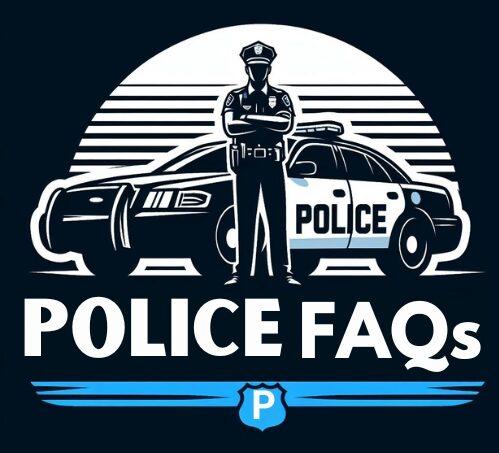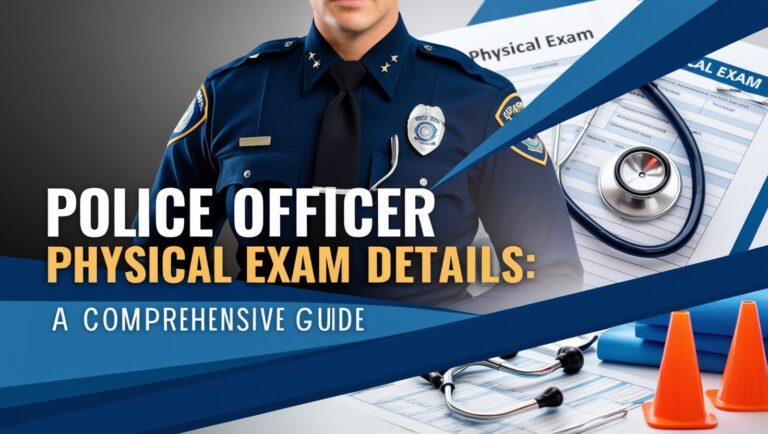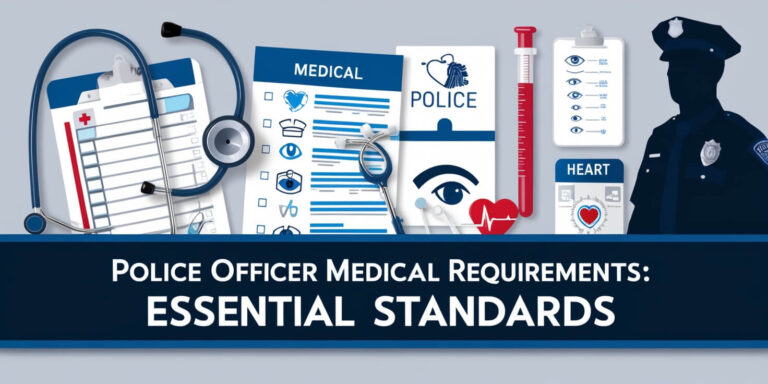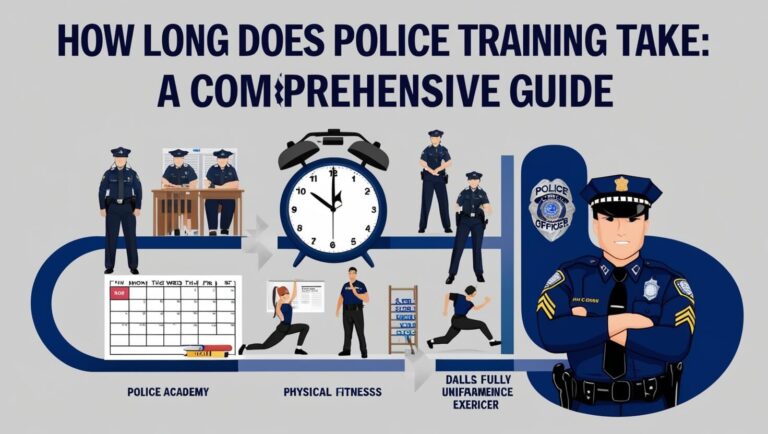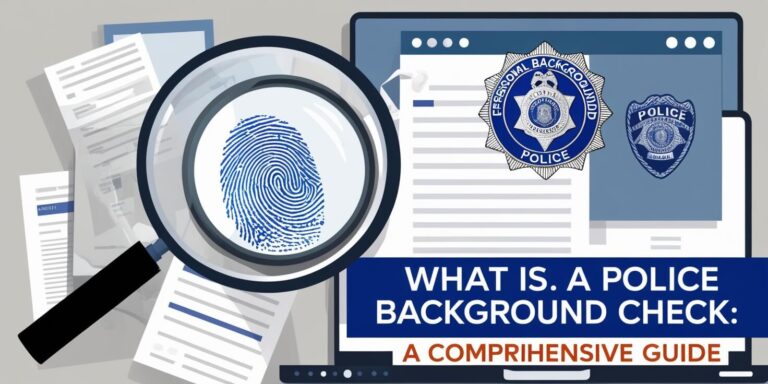Police Officer Exam Requirements: A Comprehensive Guide
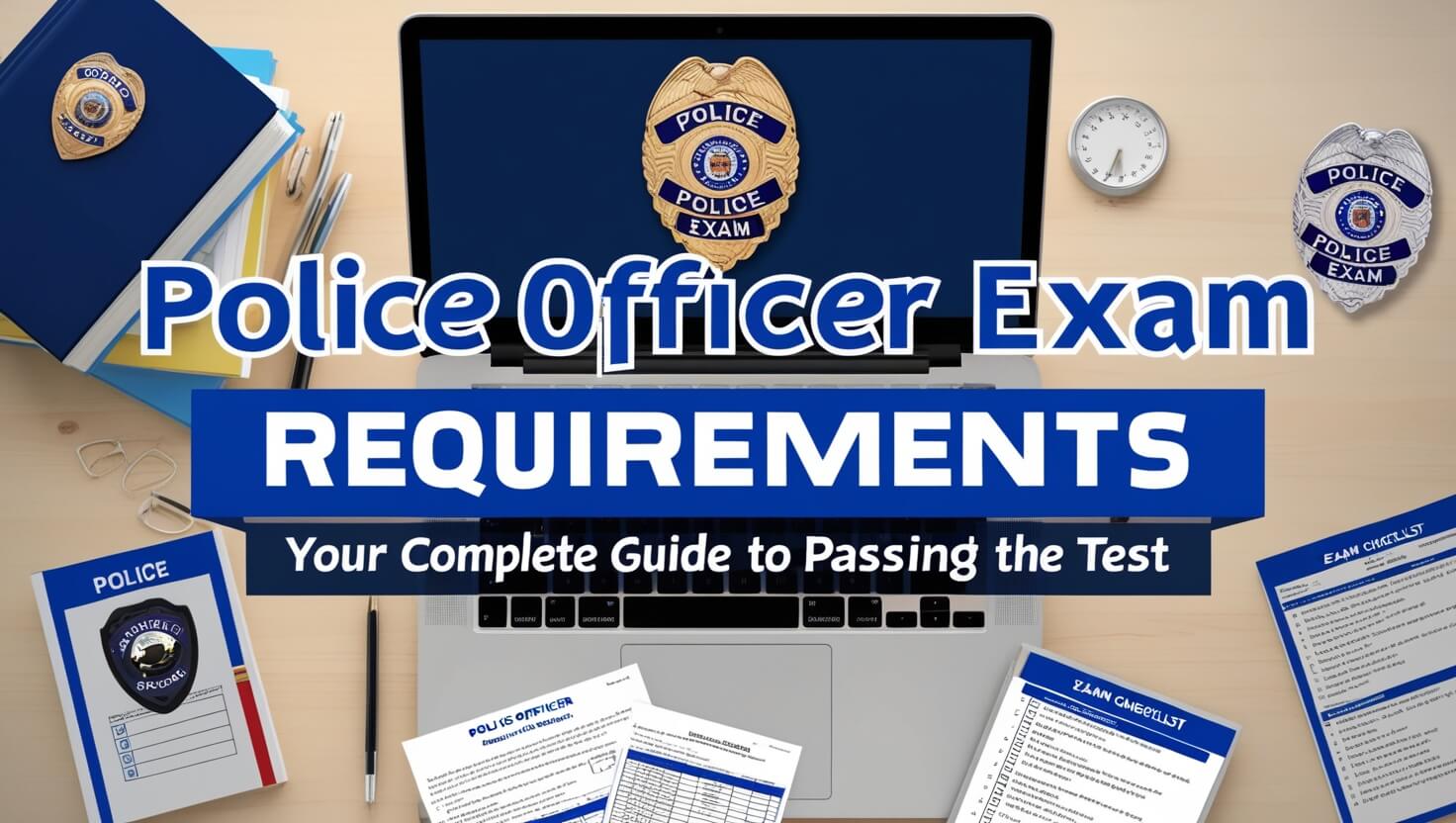
Police officer exam requirements typically include a written test, physical fitness assessment, psychological evaluation, and background check. Candidates must usually be at least 18-21 years old, have a high school diploma or GED, and possess a valid driver’s license.
Becoming a police officer is a noble pursuit, but the journey starts with passing a series of rigorous exams. This guide will walk you through everything you need to know about police officer exam requirements, helping you prepare for success in your law enforcement career.
Introduction to Police Officer Exams
Police officer exams serve as the gateway to a career in law enforcement. They’re designed to test your skills, knowledge, and aptitude for the challenging role of a police officer.
Why Police Officer Exams Matter
These exams are crucial because they:
- Ensure candidates have the necessary skills for the job
- Help departments select the most qualified applicants
- Maintain high standards in law enforcement
Types of Police Exams Across the U.S.
Different jurisdictions use various exams. Some common ones include:
- National Police Officer Selection Test (POST)
- National Criminal Justice Officer Selection Inventory (NCJOSI)
- Law Enforcement Aptitude Battery (LEAB)
Some departments also create their own custom exams.
Basic Eligibility Criteria for Taking Police Exams
Before you can take the exam, you’ll need to meet certain basic requirements.
Age Requirements
Most departments require candidates to be at least 18 years old. However, many set the minimum age at 21. There’s often an upper age limit too, typically around 35-40 years old.
Educational Prerequisites
A high school diploma or GED is the minimum educational requirement. Some departments prefer candidates with college degrees, especially for higher-ranking positions.
Citizenship and Residency Rules
You must be a U.S. citizen to become a police officer. Some departments also have residency requirements, meaning you need to live in the area you’ll be serving.
Driver’s License and Driving Record
A valid driver’s license is essential. Your driving record should be clean, with no major violations.
Common Components of Police Officer Exams
Police officer exams typically consist of several parts. Let’s break them down.
Written Test Sections
The written test is often the first hurdle you’ll face.
Reading Comprehension
This section tests your ability to understand and interpret written information. You might read a passage and answer questions about it.
Mathematics
Basic math skills are crucial for police work. Expect questions on addition, subtraction, multiplication, division, and percentages.
Grammar and Writing Skills
You’ll be tested on your ability to communicate clearly in writing. This may include identifying grammatical errors or writing short essays.
Situational Judgment
These questions present scenarios you might encounter as a police officer. You’ll need to choose the best course of action based on department policies and common sense.
Physical Fitness Assessments
Being a police officer is physically demanding. The fitness test might include:
- Running a set distance in a specific time
- Completing a certain number of push-ups and sit-ups
- Demonstrating agility through obstacle courses
Psychological Evaluations
This test assesses your mental fitness for the job. It looks at your personality, stress tolerance, and decision-making skills.
Background Checks
A thorough background check will be conducted to ensure you have a clean record and good character.
Preparing for the Written Police Exam
Success on the written exam requires careful preparation.
Study Materials and Resources
Many resources can help you prepare:
- Police exam prep books
- Online courses
- Local library resources
- Department-provided study guides
Practice Tests and Their Importance
Taking practice tests is crucial. They help you:
- Familiarize yourself with the test format
- Identify your weak areas
- Improve your time management skills
Time Management Strategies
Most sections of the exam are timed. Practice answering questions quickly but accurately. If you’re stuck on a question, move on and come back to it later if time allows.
Test-Taking Tips for Success
- Read each question carefully
- Eliminate obviously wrong answers
- Trust your first instinct
- Don’t leave any questions unanswered
Mastering the Physical Fitness Test
The physical fitness test is a crucial part of police officer exam requirements.
Common Physical Abilities Tested
Most departments test:
- Cardiovascular endurance
- Upper body strength
- Core strength
- Flexibility
- Agility
Training Regimens for Peak Performance
Start training well in advance. A typical regimen might include:
- Regular cardio exercises like running or cycling
- Strength training focusing on push-ups, sit-ups, and pull-ups
- Flexibility exercises and stretching
What to Expect on Test Day
On the day of the physical test:
- Wear comfortable, athletic clothing
- Stay hydrated
- Warm up properly before each test component
- Pace yourself throughout the test
Navigating the Psychological Evaluation
The psychological evaluation is a crucial part of police officer exam requirements.
Purpose of Psychological Screening
This evaluation ensures candidates are mentally fit for the challenges of police work. It assesses:
- Stress tolerance
- Decision-making skills
- Personality traits suitable for law enforcement
Common Psychological Tests Used
Tests may include:
- Minnesota Multiphasic Personality Inventory (MMPI)
- California Psychological Inventory (CPI)
- Inwald Personality Inventory
How to Approach the Evaluation
- Be honest in your responses
- Don’t try to outsmart the test
- Get a good night’s sleep before the evaluation
- Stay calm and focused during the assessment
Understanding the Background Check Process
A thorough background check is a key part of police officer exam requirements.
What Investigators Look For
They’ll examine:
- Criminal history
- Driving record
- Credit history
- Employment history
- References
- Social media presence
Potential Disqualifiers
Common disqualifiers include:
- Felony convictions
- Recent drug use
- Poor credit history
- Dishonorable discharge from the military
How to Prepare for a Background Check
- Be honest on all application forms
- Gather necessary documents in advance
- Inform your references that they may be contacted
- Be prepared to explain any past issues
Specialized Exams for Different Law Enforcement Roles
Different law enforcement roles may have specific exam requirements.
State Trooper Exam Specifics
State trooper exams often emphasize:
- Traffic laws
- Highway safety
- Geographic knowledge of the state
Federal Law Enforcement Exam Requirements
Federal agencies like the FBI or DEA have their own exams. These often include:
- More advanced academic content
- Foreign language skills assessment
- Extensive background checks
Detective and Investigator Exam Differences
These exams may focus more on:
- Analytical thinking
- Problem-solving skills
- Knowledge of investigative techniques
After the Exam: Next Steps in the Hiring Process
Passing the exam is just the first step in becoming a police officer.
Interpreting Your Exam Results
Results are typically given as a pass/fail or as a numerical score. A passing score doesn’t guarantee a job offer but puts you in the pool of eligible candidates.
The Interview Process
If you pass the exams, you’ll likely be invited for an interview. This may include:
- One-on-one interviews
- Panel interviews
- Scenario-based questions
Medical Examinations and Drug Screening
A comprehensive medical exam and drug test are usually the final steps before a job offer.
Common Challenges and How to Overcome Them
Many candidates face challenges when preparing for police officer exams.
Dealing with Test Anxiety
- Practice relaxation techniques
- Prepare thoroughly to boost confidence
- Get enough sleep before the exam
- Stay positive and visualize success
Improving Weak Areas
- Identify your weaknesses through practice tests
- Focus extra study time on these areas
- Consider getting a tutor for difficult subjects
Retaking the Exam: Policies and Strategies
If you don’t pass the first time:
- Review department policies on retaking the exam
- Analyze what went wrong in your first attempt
- Create a new study plan focusing on problem areas
- Consider additional preparation resources
The Future of Police Officer Exams
Police officer exam requirements are evolving to meet changing needs in law enforcement.
Evolving Standards and Requirements
Recent trends include:
- Increased emphasis on community policing skills
- Focus on de-escalation techniques
- Greater importance placed on cultural awareness
Technology’s Impact on Testing Methods
New technologies are changing how exams are administered:
- Computer-based testing becoming more common
- Virtual reality simulations for scenario-based assessments
- Online proctoring for remote test-taking
Diversity and Inclusion Initiatives in Hiring
Many departments are working to create a more diverse police force by:
- Reaching out to underrepresented communities
- Offering mentorship programs
- Reviewing exam content for potential biases
Conclusion: Embarking on Your Law Enforcement Career
Understanding police officer exam requirements is the first step in your journey to a rewarding career in law enforcement. With thorough preparation and dedication, you can succeed in these exams and move forward in the hiring process. Remember, becoming a police officer is not just about passing tests – it’s about committing to serve and protect your community.
FAQs About Police Officer Exam Requirements
- How long does the police officer exam process take? The entire process, from application to final job offer, can take several months to a year.
- Can I retake the exam if I fail? Most departments allow retakes, but there’s usually a waiting period.
- Do I need law enforcement experience to pass the exam? No, the exams are designed for entry-level candidates without prior experience.
- Are there different exams for different police departments? Yes, while there are some standardized tests, many departments create their own exams.
- How can I find out about upcoming police exams in my area? Check local police department websites or contact their recruitment offices for information.
